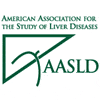 The future of hepatitis C treatment was looking bright at the annual meeting of the American Association of the Study of Liver Disease (AASLD) in Boston as pharmaceutical and biotech companies lifted the curtain on a panoply of results from their hep C pipeline research. As Reuters reports, among the most exciting results were the high cure rates from Abbott Laboratories’ three-drug regimen in development, which led to a sustained virological response in 93 percent of people with hepatitis C virus (HCV) who had failed a previous treatment and 97 percent of treatment-naive patients.
The future of hepatitis C treatment was looking bright at the annual meeting of the American Association of the Study of Liver Disease (AASLD) in Boston as pharmaceutical and biotech companies lifted the curtain on a panoply of results from their hep C pipeline research. As Reuters reports, among the most exciting results were the high cure rates from Abbott Laboratories’ three-drug regimen in development, which led to a sustained virological response in 93 percent of people with hepatitis C virus (HCV) who had failed a previous treatment and 97 percent of treatment-naive patients.
Abbott’s interferon-free regimen includes a protease inhibitor known as ABT-450, a polymerase inhibitor called ABT-333, and an NS5A inhibitor, ABT-267. The drugs were studied both with and without ribavirin among people with genotype 1 infections—the most difficult to treat strain, and the most common. The top cure rates were found in the ribavirin-inclusive regimen, although even without that antiviral drug the trio cured 87 percent of treatment-naive patients. All cures were achieved in only 12 weeks, and just 4 out of the 448 participants left the study because of adverse events. This suggests these drugs are highly tolerable—which is especially notable considering the flu-like symptoms common in the interferon-based regimens that are the standard of treatment today.
To read the Reuters story, click here.
Advertisement
Advertisement
Advertisement






1 Comment
1 Comment